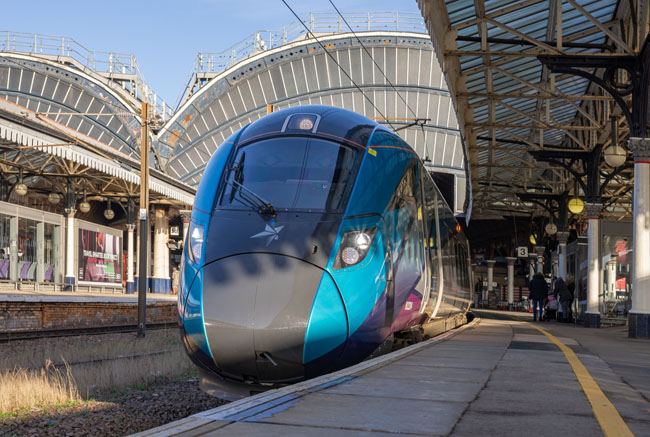The Department for Transport (DfT) has said it ‘does not recognise’ a claim that the rail industry has been asked to deliver cuts of 10% over the next financial year, but has not denied the report outright.
The Sunday Times said ministers decided to start winding down a £16bn bailout that was needed to keep services running as passengers stayed away and revenue fell, leading to cuts in services.

York Railway Station January 2022
Citing industry sources, the paper reported that the rail industry has been told by the Department for Transport to cut costs by 10% for the financial year starting in April.
Sir Michael Holden, who previously ran the nationalised East Coast Rail for the government, told the paper: ‘We are at a watershed moment. The only way to save 10% of train companies’ costs in the short term is to take out whole fleets of trains. Such an act will mean that it’s impossible in the foreseeable future to build back services should demand increase.’
However, Network Rail chief executive Andrew Haines said: ‘We are running thousands of trains every day with hundreds of thousands of empty seats including at peak times, so if you want to use the train to get back to work, you absolutely can. As passengers return to the railway then we will further increase service levels with the reliability that those passengers deserve.'
A spokesperson for the DfT said it had ‘asked operators for sustainable business plans to protect taxpayer money and reflect passenger levels’.
The spokesperson added: ‘We do not recognise the claim that industry has been asked to deliver cuts of 10% over the next financial year.’
The Sunday Times claim of a £16bn bailout appears to be based on data from regulator the Office of Rail and Road for 2020/21, which showed that out of the total rail industry spending of £21bn, the government was supplying £16.9bn.
However, this figure included £6.6bn to fund Network Rail and £10.2bn net passenger operator support, rather than purely supporting private sector companies struggling due to the pandemic.
The Autumn Budget put total ringfenced COVID-19 spending for the year, which covers other industries, at £12.9bn, predicted to fall to £4.9bn during the current financial year.
The Budget document did not give a COVID subsidy figure for the years from 2022/23 onwards, but stated that the DfT’s revenue funding was set to fall ‘as rail revenues are forecast to recover, thereby reducing the subsidy that is required’.
While both service levels and passenger numbers had recovered by the end of last year to levels approaching pre-pandemic levels – 85% and 70% respectively – the arrival of the Omicron variant saw both fall back again, with rail firms introducing emergency timetables and passenger numbers falling back to 53% of normal.
Last week the Rail Delivery Group launched a commuter rewards initiative ‘to entice customers back now that work from home restrictions have lifted’. It said that since the work from home ‘restrictions’ were removed the previous week, peak journeys had increased by 5%.
It added: ‘Train companies will be monitoring timetables and in the coming weeks, stepping up the number of trains they run in a way that reflects demand to help passengers travel with confidence.’
Register now for full access
Register just once to get unrestricted, real-time coverage of the issues and challenges facing UK transport and highways engineers.
Full website content includes the latest news, exclusive commentary from leading industry figures and detailed topical analysis of the highways, transportation, environment and place-shaping sectors.
Use the link below to register your details for full, free access.
Already a registered? Login